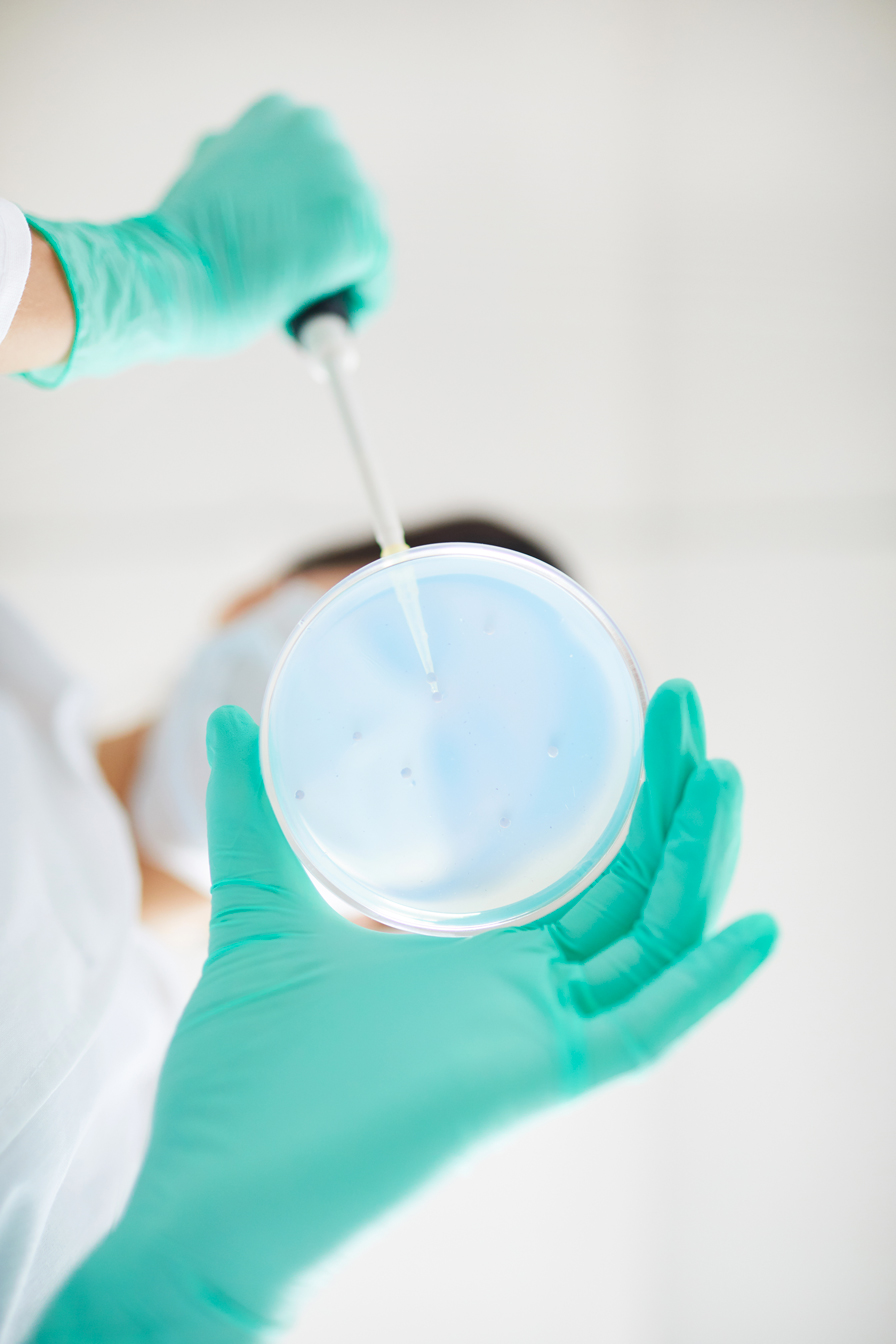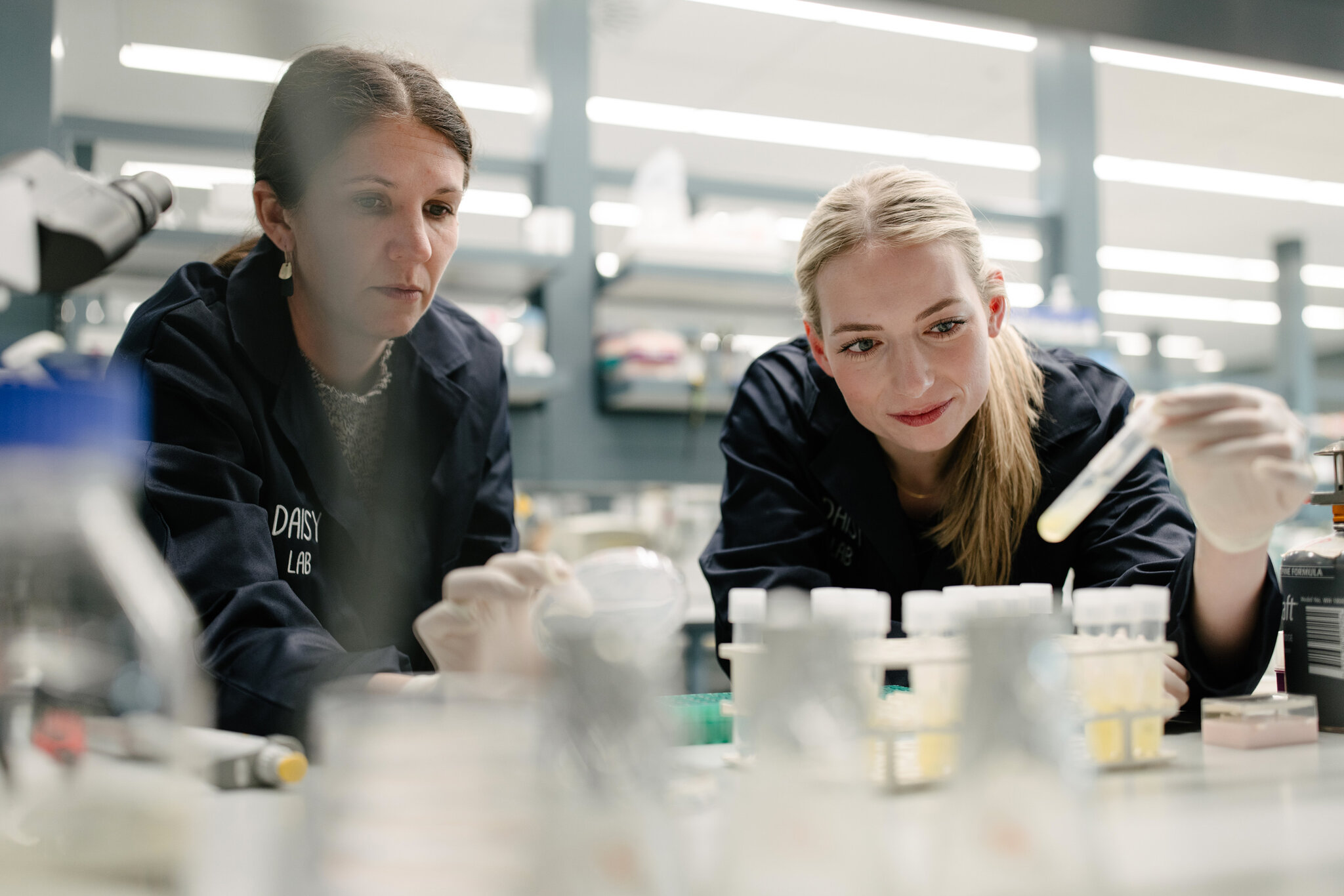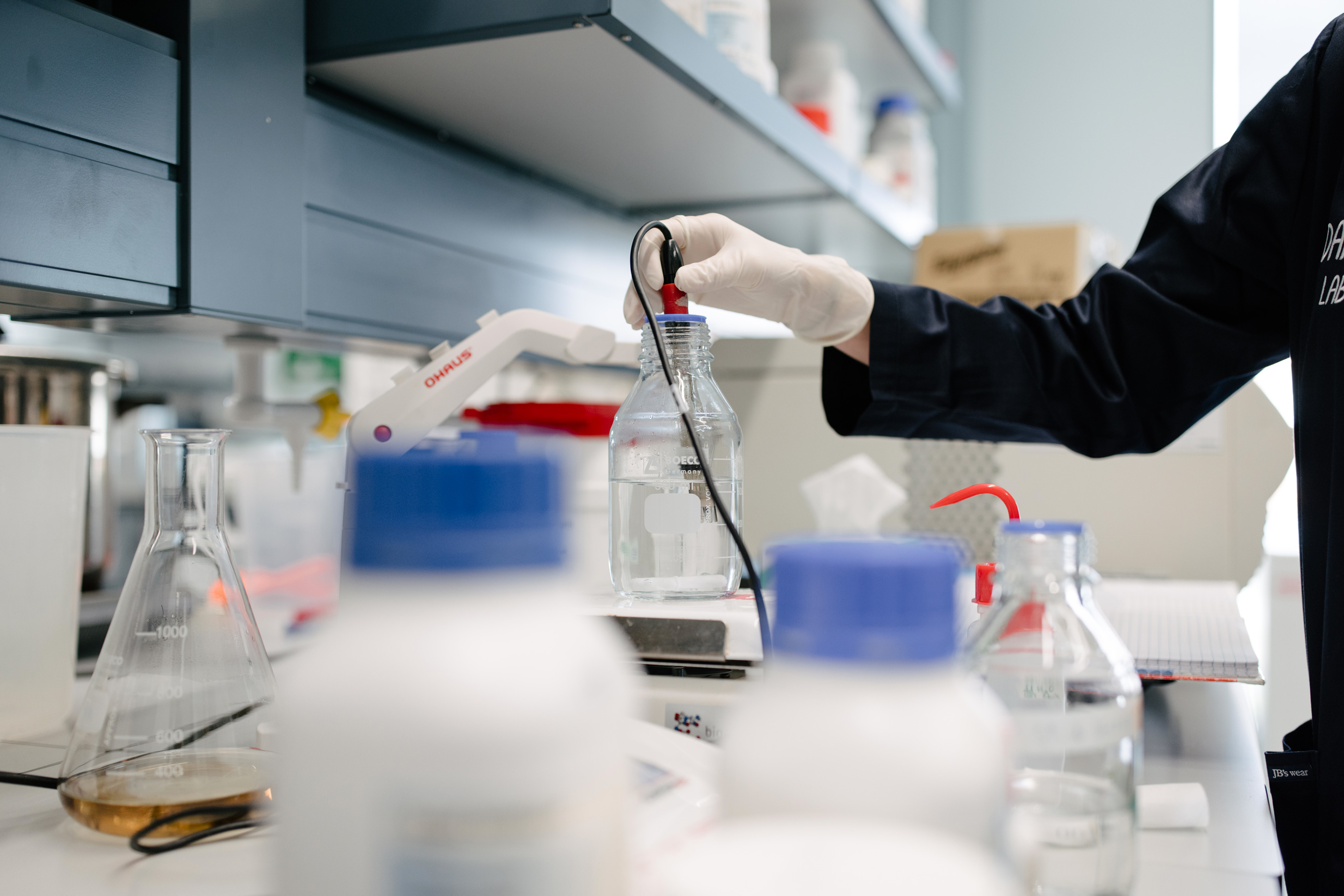Start-ups innovation
— Column
Daisy Lab – Rethinking Dairy
KEYWORDS
Precision fermentation
Biotech
Alt-proteins
Soil
Herbal medicine
Polyphenols
Immune health
Immune health
Daisy Lab is a start up based in Auckland, New Zealand that uses precision fermentation technology to produce proteins that are traditionally from cow’s milk such as beta-lactoglobulin and lactoferrin.
State of the art:
There are several precision fermentation companies globally, with a handful of big players in the dairy protein space. This technology has been used for years to produce high value, low quantity proteins or pharmaceuticals such as rennet and insulin. Today, the technology is being harnessed to produce bulk proteins like dairy proteins, to feed the growing population without the associated ethical and environmental consequences of the traditional dairy or agricultural industries.

AIM – Fill in the gap
What made you decide to open the start-up? Have you conducted a market assessment?
Irina Miller (Co-founder and CEO) had encountered this technology while working in the dairy industry and recognized it’s potential for New Zealand. Driven by a desire to explore its potential, she partnered with molecular biologist, Dr. Nikki Freed. Together, they decided to sponsor a student’s master’s thesis to prove the concept. Emily McIsaac then joined as the third co-founder, researching precision fermentation as part of her master’s degree.
Irina’s passion for precision fermentation stemmed from her awareness that New Zealand’s primary export is not whole milk, but individual dairy ingredients, like milk proteins. Adding to this, was the growing demand for food that is ethically and environmentally sustainable yet has the same nutritional and functional properties as animal derived proteins.
Life cycle analysis on similar processes suggest that precision fermentation for dairy identical protein can reduce greenhouse gas emissions by up to 97%, water use by up to 99% and land use by up to 99%, when compared with traditional dairy.
Precision fermentation offers a solution for the increased demand in protein, without having to intensify our traditional dairy any further.
Your start-up: who are you
Irina Miller, Co-founder/COO - Dr. Nikki Freed, Co-founder/CSO - Emily McIsaac, Co-founder/COO - Dr. Daniel La Grange, R&D scientist - Bhavesh Govind, R&D scientist - Kiara Cruickshank, R&D scientist - Nick McGrath, R&D scientist. Founded February 2021, Daisylab.co.nz.

What do you offer
Daisy Lab is a biotech start up that is developing precision fermentation for dairy equivalent proteins. We create strains of yeast that can produce the specific proteins we are interested in, such as beta-lactoglobulin or lactoferrin. We then develop the fermentation protocols as well as filtration and separation protocols to maximise yield and recovery of our target proteins.
Why you
Daisy Lab is a team of incredibly enthusiastic individuals who are all motivated to work hard to bring better food outcomes to New Zealand. We have a high level of expertise in molecular biology across the team which means we have a real focus on making our strains and processes as efficient as possible.
We are the only precision fermentation company in New Zealand, the world’s largest dairy exporter. With that comes an extensive ecosystem of innovation, expertise and equipment. We have developed our strains to be able to use the existing processing infrastructure in New Zealand, reducing the CAPEX requirements for the uptake of this technology in New Zealand.

Challenges
New Zealand has very tight regulations around the use of genetically modified organisms. We have been lucky enough to receive EPA approval to ferment our GMO strains to 5000L which will enable us to develop a pilot plant and demonstrate our processes at scale.
This is the largest approval that has been given in New Zealand and is instrumental in facilitating the development of this technology here.
As we are a start-up, another challenge is funding. We are currently raising our pre-series A round to build this pilot plant.
Perspectives
Precision fermentation technology for dairy equivalent proteins is still in its infancy. However, experts agree that it has the potential to be very disruptive to the dairy industry and offers a solution to the protein shortage issues our planet will encounter as our population grows. Much like other deep-technology ventures, precision fermentation will inevitably reach an inflection point where the price will drop below traditional dairy and precision fermentation proteins will be ubiquitous in foods, changing the landscape of protein production globally.
References and notes
- https://isappscience.org/for-scientists/resources/prebiotics/
- Rodríguez-Daza MC, Pulido-Mateos EC, Lupien-Meilleur J, Guyonnet D, Desjardins Y, Roy D. Polyphenol-Mediated Gut Microbiota Modulation: toward prebiotics and further. Frontiers in Nutrition. 2021 Jun 28;8. https://www.frontiersin.org/journals/nutrition/articles/10.3389/fnut.2021.689456
- Pessoa AFM, Florim JC, Rodrigues HG, Andrade‐Oliveira V, Teixeira SA, Vitzel KF, et al. Oral administration of antioxidants improves skin wound healing in diabetic mice. Wound Repair and Regeneration. 2016 Oct 12;24(6):981–93. https://pubmed.ncbi.nlm.nih.gov/27684945/
- Nehmi VA, Murata GM, De Moraes RCM, Lima GCA, De Miranda DA, Radloff K, et al. A novel supplement with yeast β-glucan, prebiotic, minerals and Silybum marianum synergistically modulates metabolic and inflammatory pathways and improves steatosis in obese mice. Journal of Integrative Medicine/Journal of Integrative Medicine. 2021 Sep 1;19(5):439–50. https://pubmed.ncbi.nlm.nih.gov/34108131/
- Nehmi-Filho V, De Freitas JA, Franco LAM, Da Silva Fonseca JV, Martins RCR, Santamarina AB, et al. Novel Nutraceutical (silymarin, yeast β-glucan, prebiotics, and minerals) shifts gut microbiota and restores large intestine histology of diet-induced metabolic syndrome mice. Journal of Functional Foods. 2023 Aug 1;107:105671. https://www.sciencedirect.com/science/article/pii/S1756464623002712
- Santamarina AB, Jamar G, Mennitti LV, De Rosso VV, Cesar HC, Oyama LM, et al. The Use of Juçara (Euterpe edulis Mart.) Supplementation for Suppression of NF-κB Pathway in the Hypothalamus after High-Fat Diet in Wistar Rats. Molecules. 2018 Jul 21;23(7):1814. https://www.mdpi.com/1420-3049/23/7/1814
- Santamarina AB, Jamar G, Mennitti LV, De Cássia Cesar H, Vasconcelos JR, Oyama LM, et al. Obesity-related inflammatory modulation by juçara berry (Euterpe edulis Mart.) supplementation in Brazilian adults: a double-blind randomized controlled trial. European Journal of Nutrition. 2019 Jun 13;59(4):1693–705. https://link.springer.com/article/10.1007/s00394-019-02024-2
- Nehmi-Filho V, De Freitas JA, Franco LAM, Da Silva Fonseca JV, Martins RCR, Santamarina AB, et al. Novel Nutraceutical (silymarin, yeast β-glucan, prebiotics, and minerals) shifts gut microbiota and restores large intestine histology of diet-induced metabolic syndrome mice. Journal of Functional Foods. 2023 Aug 1;107:105671. https://www.sciencedirect.com/science/article/pii/S1756464623002712
- Nehmi‐Filho V, De Freitas JA, Franco LA, Martins RC, Turri JAO, Santamarina AB, et al. Modulation of the gut microbiome and Firmicutes phylum reduction by a nutraceutical blend in the obesity mouse model and overweight humans: A double‐blind clinical trial. Food Science & Nutrition. 2024 Jan 19;12(4):2436–54. https://pubmed.ncbi.nlm.nih.gov/38628220/
- Santamarina AB, De Freitas JA, Franco LAM, Nehmi-Filho V, Fonseca JV, Martins RC, et al. Nutraceutical blends predict enhanced health via microbiota reshaping improving cytokines and life quality: a Brazilian double-blind randomized trial. Scientific Reports. 2024 May 15;14(1). https://www.nature.com/articles/s41598-024-61909-3

